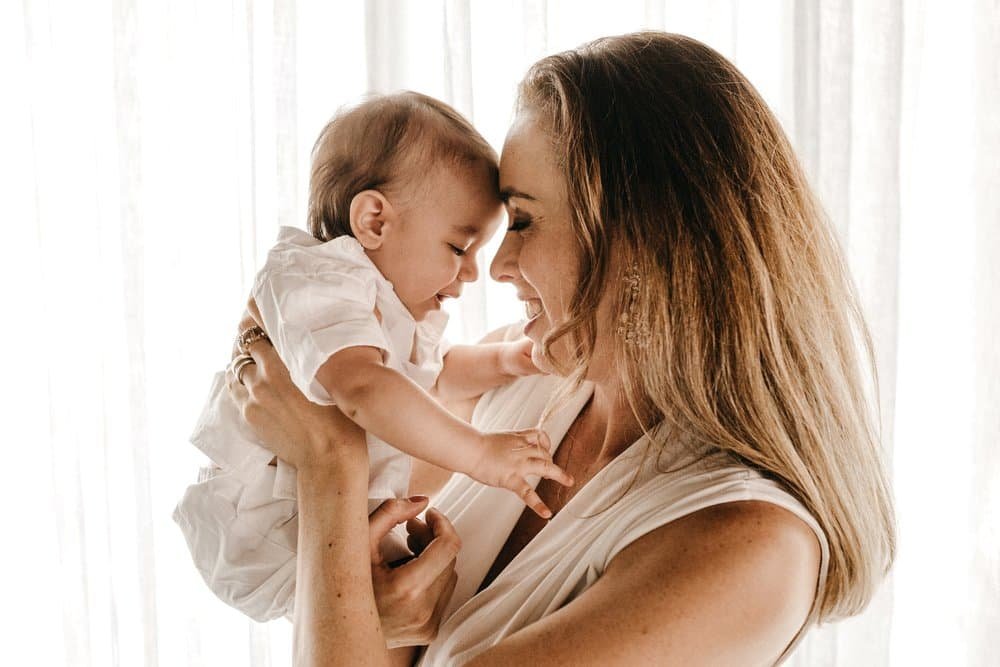What does a nanny do? A job description
A lot of people have some sense of what a nanny does, but when you become a parent, the details start to matter. This guide gives you an easy overview of a nanny job description: what’s always expected and what out-of-the-box requests require further negotiations. By setting these expectations up front, your working relationship with your nanny will be smooth sailing from the start!
A nanny is a childcare professional
If you are looking to hire a nanny, you may be thinking of the role as a blanket solution for someone to take care of your kids, and not really go into detail about what it may entail. But as you as a parent know, so much goes into daily care for a child and making a day run smoothly for your family. Some of those tasks will be a given for the nanny to take over, whereas some responsibilities may be handed over in agreement.
Different roles for different jobs
Some overarching responsibilities may also be more common for a full-time, long-term nanny but not typical in a part-time or ad hoc/occasional babysitting role. In general, full-time, long-term nannies will have more responsibilties and more agency to handle these responsibiltiies on their own. A part-time nanny may still do some of them, but with more direction from a parent.
Example: a full-time nanny may have full responsibility for maintaining the kids’ wardrobe, checking for when new clothes are needed or switching between seasons, whereas a part-time nanny may be more likely to do it under guidance from a parent.
Nannying is childcare - emphasis on child
The ground rule of what a nanny does is they relate to children. A childcare professional got into their line of work to help families and aid in the development of their children. For this reason, anything relating to the kids’ day-to-day is included in a nanny’s role, whereas things relating to the home beyond the kids is not assumed to be. Some of those tasks can be negotiated, but do not assume the nanny will do them.
Remember! Additional responsibilities not directly tied to childcare can take time away from your nanny’s ability to plan for and execute enriching activities with your kids. Which might be necessary for the day-to-day operations of your household, but might not be the best use of a childcare professional with a child development degree and experience.
Key responsibilities of a nanny
All tasks pertaining to the care and daily life of your child:
Meals and feeding
Planning activities
Emotional, nurturing care
Stimulating activities to encourage growth and development at the child’s level
Taking the child to classes, groups, etc.
Ensuring all necessary items are packed for pre-school or school
Homework
Naps
Cleaning up from the day’s activities, whether that is making the bed, tidying a playroom, or keeping the kitchen the same level of cleanliness it was at the beginning of the day
Washing and sterilizing bottles as applicable
School drop-off and pick-up as applicable
Playdates with friends, both organizing on their own or taking to playdates you had planned
Kids’ laundry
Long-term maintenance of your child’s life (especially for full-time, long-term nannies):
Maintaining wardrobe, switching out seasonally
Prepping clothes and supplies for back-to-school, camp, etc.
May include scheduling check-ups or going to the pediatrician, with your permission
Errands for supplies and groceries to make the kids’ days smoother
Nanny tasks that require negotiation
A few responsibilities don’t typically fall under the nanny role, but you may be greatly helped if a person in your home all day handled them. If so, consider discussing these with your chosen candidate at the time of hire.
If your nanny agrees, include any additional responsibilities in your nanny contract and compensate accordingly.
Walking the dog: Caring for pets is a non-nanny task that is often included in a nanny contract as an additional responsibility. It might be a small thing, like feeding the dog dinner, or it may include midday walks while also handling the children. If your nanny is happy to do it, great, but it is not typically expected of a nanny.
Parent laundry: Managing the kiddos’ laundry is often included in a nanny role, particularly for full-time nannies who oversee the entirety of the kids’ daily life. However, doing the parents’ laundry is often not included. If you are looking for a housekeeper/nanny combination, this role may include all family laundry, but that expectation needs to be made clear up front. This brings us to the point of more general housekeeping.
Housekeeping: Nannies will typically clean up after the kiddos and their activities throughout the day, whether that entails dishes and kitchen cleanup, putting away toys, or wiping down dirty boots or strollers on a rainy day. However, nannies are generally not tasked with major household cleaning, or housekeeping that doesn’t pertain to the kids. Cleaning the kitchen means leaving it in the same shape as they found it in the morning, not handling your entire dinner mess from the night before.
If you are looking for this kind of housekeeping help during the day, just as with parent laundry, make it clear when you begin the hiring process that you are looking for a housekeeper/nanny. For some candidates, this is a fine setup, whereas other childcare professionals are looking to devote their entire time exclusively to children’s development and learning.
Cooking for family: While making food for kiddos throughout the day is part of a nanny’s key role, not all nannies are comfortable with cooking adult meals. They may find it stressful to cook food for the parents, may not feel they have the time away from the kids for preparing the meal, or may not enjoy cooking at all. If you want your nanny to cook for everyone, this needs to be stated before a hire.
Caring for others’ children: Friends are important to every child’s development and playdates can enrich any day. Playdates are a given part of nannying. However, fully taking care of other families’ children is not. If you want your nanny to pick up someone else’s kids at school, or if another parent wants to drop off their kids for a playdate and leave their care to the nanny, you must discuss this with your nanny beforehand.
Important questions to ask about caring for others’ children:
Is your nanny comfortable taking care of twice as many children to begin with?
Who is responsible if something happens to the other family’s kids?
Is your nanny able to implement your agreed-upon discipline styles and boundaries on these kids?
And, perhaps most importantly: compensate the nanny for taking care of extra children. It is customary for the other parent to pay an additional hourly if your nanny is taking care of their children, basically as with a nanny share.
By discussing these things up front, you have the chance to lay out your expectations and consider compensation. The nanny, in return, gets the chance to be on board and know their responsibilities from the start. This avoids any resentment or mounting tensions from added-on responsibilities that aren’t typically a given for the role.
A note on naptime and nannies
If you have a kid who takes a long nap, or a baby who sleeps intermittently through the day, you may be wondering, what does a nanny do all day during naps? Am I paying this person to sit around and stare at their phone? But as a parent, you know there is plenty to do during any potential downtime.
Naptime is a great time for the nanny to clean up, prepare meals, do the baby’s laundry, plan toddler activities or crafts, or get the stroller ready for an excursion. You are also paying to ensure that a responsible, engaging, and nurturing professional is available to your child at any moment of the shift, whether they sleep as planned or have a day where they’re waking up after half an hour.
After all, you wouldn’t take 1-2 hours’ pay out of a preschool fee if your child was napping.
Different types of nannies
Beyond full-time and part time nannies, there are several different kinds of roles a professional caregiver can work with children. You can learn more about them via the links below:
Newborn Care Specialists (NCS) - a round-the-clock infant expert for the first few weeks of your child’s life
Travel Nannies – travel savvy childcare providers who put the yay in your vacation
Live-in Nannies – a full-time nanny with no commute for total reliability
Au Pairs – Cultural exchanges when experience and flexibility are lower on your list of must-haves
Unsure? Let us help you
At our nanny agency, we know that responsibilities can get muddled and well-meaning parents can be unsure about the roles and responsibilities within their working relationship with the nanny. That’s why we help families and candidates work out a proper nanny contract and have any of the tricky conversations up front.
Need help navigating the hire of your next nanny? We’ll guide you the whole way – from thinking about what you need to setting up the right expectations through to working with your new favorite person.


